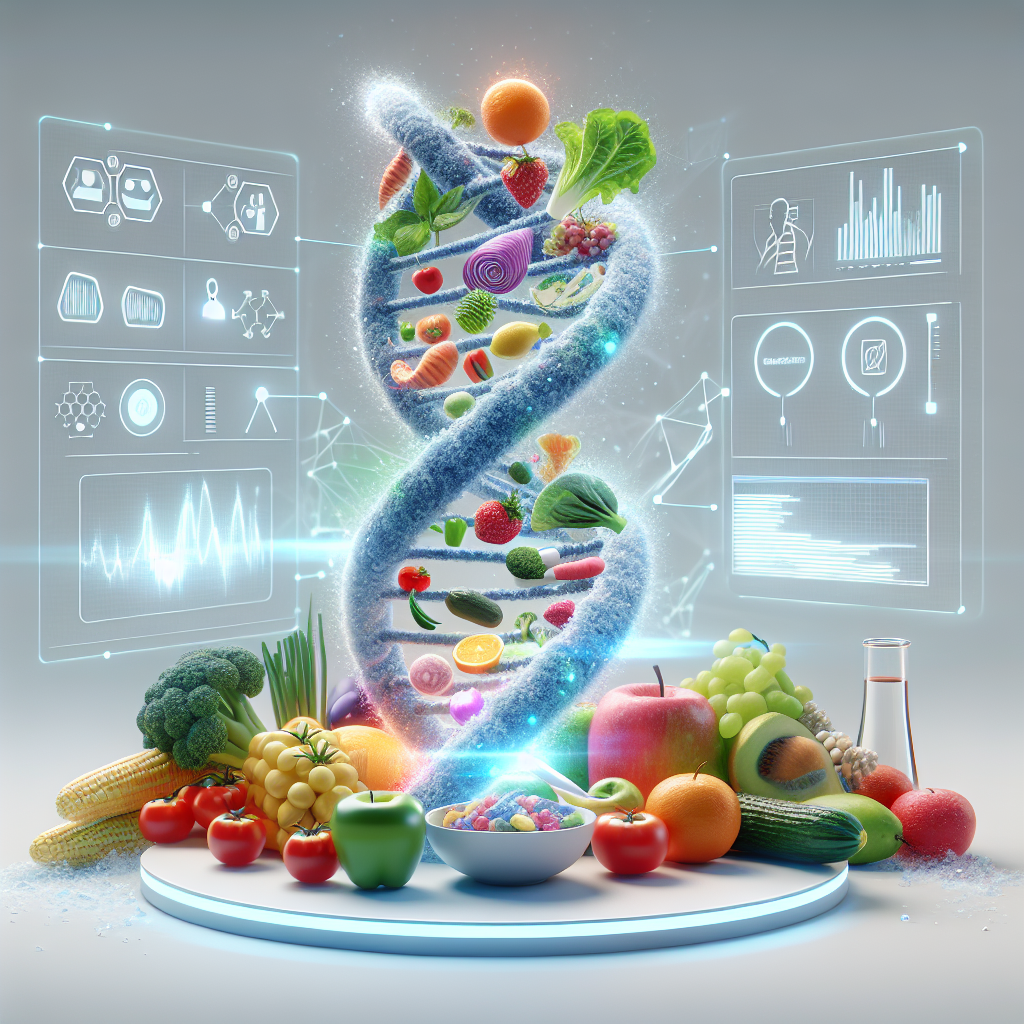Have you ever tried a popular diet that worked wonders for your friend but left you feeling exhausted, hungry, and no closer to your health goals? You’re not alone. Sarah, a 35-year-old marketing executive, followed the same keto diet that helped her colleague lose 20 pounds, only to experience headaches, irritability, and minimal weight loss after weeks of strict adherence. Meanwhile, Michael abandoned a widely acclaimed Mediterranean diet plan despite its stellar reputation because the recommended foods simply didn’t satisfy his hunger or fit his lifestyle.
These aren’t isolated incidents. They represent a fundamental problem with how we approach nutrition in our society: the myth of the one-size-fits-all diet. These generic eating plans flood our social media feeds, bookstore shelves, and conversations, promising universal results while ignoring what makes each of us unique—our genetics, metabolism, lifestyle, preferences, and health history.
“I’ve tried every diet out there,” says Jamie, a 42-year-old teacher. “Each time, I hear about amazing results from others, but my experience is always different—usually disappointing. It made me feel like a failure until I realized it wasn’t me failing the diet; it was the diet failing to address my specific needs.”
The diet industry thrives on this cycle of temporary success and inevitable failure. A staggering 95% of diets fail in the long term, not because people lack willpower, but because standardized nutrition plans aren’t designed for individual success. They’re designed for mass consumption, overlooking the complex interplay of factors that influence how each person processes and responds to food.
Beyond Cookie-Cutter Solutions: The Promise of Personalized Nutrition
Enter personalized nutrition (PN)—a revolutionary approach that’s transforming how we think about food and health. Unlike conventional diets that prescribe the same eating patterns for everyone, personalized nutrition considers your unique biological makeup, lifestyle factors, and personal preferences to create dietary recommendations tailored specifically to you.
Personalized nutrition isn’t just a trend—it’s a science-based framework that recognizes what nutritionists and researchers have long understood: our bodies respond differently to the same foods. Your friend might thrive on a high-protein diet while your system works better with more complex carbohydrates. Your colleague might need to eat six small meals throughout the day, while your body functions optimally with intermittent fasting.
Dr. Elena Martinez, a nutrition researcher, explains: “Personalized nutrition represents a profound shift in dietary science. By analyzing individual genetic profiles, gut microbiome composition, metabolic responses, and lifestyle factors, we can create nutrition interventions that work with a person’s biology instead of against it.”
Key Benefits of Personalized Nutrition
The benefits of this tailored approach are significant:
– Enhanced nutrition absorption based on your unique digestive capabilities
– Targeted support for personal health goals, whether that’s weight management, improved energy, or addressing specific health concerns
– Sustainable dietary changes that complement your lifestyle and food preferences
– Prevention of nutritional deficiencies based on your individual needs
– Improved management of chronic conditions through precise nutrition intervention
A landmark study published in the journal Cell demonstrated that even identical twins—people with the same genetic makeup—can have different blood sugar responses to identical meals. This groundbreaking research highlights why generic nutrition advice falls short and why personalized approaches are essential for optimal health outcomes.
The Proof Is in the Personalization: Better Results Through Tailored Approaches
When nutrition plans align with your personal preferences and biological needs, something remarkable happens: change becomes sustainable. Unlike rigid, one-size-fits-all diets that often feel like punishment, personalized nutrition interventions work with your natural inclinations and unique requirements.
Take Lisa’s experience with a personalized nutrition intervention. After years of struggling with inflammatory issues and fatigue while following popular elimination diets, a tailored approach identified specific trigger foods unique to her system while keeping foods in her diet that generic plans would have unnecessarily restricted. Within weeks, her inflammation markers decreased, and her energy levels improved dramatically.
“The difference was night and day,” Lisa shares. “Previous diets had me eliminating entire food groups that, as it turns out, weren’t problematic for me at all. Meanwhile, I was regularly consuming ‘healthy’ foods that were actually causing inflammation in my body. A personalized approach helped me identify what works specifically for my body.”
Research supports these anecdotal successes. A 2020 study in the British Medical Journal followed 1,100 participants receiving either standard dietary guidance or personalized nutrition intervention. After 12 months, those in the personalized group showed significantly better adherence to their eating plans and greater improvements in health markers compared to the standard advice group.
Research Spotlight
The 2020 BMJ study showed that personalized nutrition participants were 67% more likely to maintain their dietary changes after one year compared to those following standard dietary advice.
Dr. James Chen, who specializes in nutrition intervention research, explains: “When we tailor dietary recommendations to individual needs, we see higher compliance rates simply because the plans make sense to people on a personal level. They experience better results faster, which reinforces positive behaviors and creates a virtuous cycle of improvement.”
This individualization is particularly important for addressing specific health conditions. For example, two people with type 2 diabetes might require substantially different dietary approaches based on their insulin sensitivity, activity levels, medication regimens, and metabolic responses to various foods. A personalized nutrition intervention can account for these variables, leading to more effective blood sugar management than a standardized diabetic diet.
The Science Behind Effective Personalization: Comprehensive Frameworks
Creating truly effective personalized nutrition plans involves more than just asking about food preferences or assessing basic health metrics. Today’s most advanced personalized nutrition frameworks integrate multiple data types to form a comprehensive picture of individual health needs.
These sophisticated approaches typically consider:
– Biomedical data: Including genetic information, blood biomarkers, gut microbiome composition, and metabolic responses to different foods
– Psycho-behavioral factors: Personal food preferences, eating patterns, stress levels, sleep quality, and lifestyle constraints
– Environmental considerations: Food accessibility, cultural background, cooking facilities, and social environment
Dr. Sarah Thompson, a nutrition scientist specializing in personalized approaches, notes: “The most successful nutrition intervention programs recognize that eating behaviors don’t exist in isolation. They’re influenced by biological factors, personal history, psychological patterns, and practical realities. By addressing all these dimensions, we create nutrition plans that people can actually implement in their daily lives.”
One particularly promising area is the analysis of metabolic responses to food. By measuring how an individual’s blood glucose, insulin, and lipid levels respond to different meals, nutrition experts can identify which foods cause problematic spikes or inflammatory responses in specific people—even foods generally considered “healthy.”
A groundbreaking study by the Weizmann Institute of Science demonstrated this principle by showing how individuals can have wildly different blood sugar responses to identical foods. For some participants, a banana caused a dramatic glucose spike while ice cream had minimal impact, contradicting conventional dietary wisdom. This kind of personalized insight allows for truly targeted nutrition intervention that works with an individual’s unique metabolism.
Did You Know?
The field of nutrigenomics—studying how foods affect our genes and how our genetic variations affect our response to nutrients—is revealing that up to 70% of our unique response to food may be attributed to our genetic makeup.
Technology: The Great Enabler of Nutrition Personalization
The rapid advancement of personalized nutrition owes much to technological innovations that have made individual assessment more accessible, affordable, and comprehensive than ever before. These technologies are revolutionizing how we understand our bodies and their nutritional needs.
Genetic testing now allows individuals to identify variations that influence how they metabolize nutrients, process carbohydrates, or respond to different types of dietary fats. Companies offering nutrition-focused genetic analysis can provide insights into how your unique genetic makeup might influence your optimal diet composition.
Continuous glucose monitors, once used exclusively for diabetic patients, are now helping health-conscious individuals understand their personal glucose responses to different foods and meal combinations. These real-time insights allow for precise nutrition interventions based on actual metabolic responses rather than general assumptions.
Wearable devices track activity levels, sleep patterns, and stress markers that influence nutritional needs and eating behaviors. When integrated with nutrition data, these measurements provide a more complete picture of how lifestyle factors interact with dietary choices.
Mobile apps and AI-powered platforms can now analyze food intake, identify patterns, and make personalized recommendations that evolve as more data becomes available. These tools make personalized nutrition more accessible to the average person without requiring constant professional consultation.
Dr. Michael Lee, who specializes in nutrition technology, explains: “We’re entering an era where technology enables a level of nutrition personalization that was unimaginable just a decade ago. The combination of advanced testing, continuous monitoring, and AI-powered analysis is revealing insights about individual nutrition needs that even the most skilled practitioners couldn’t identify through conventional methods.”
This technological revolution democratizes access to personalized nutrition intervention. What once required expensive lab testing and multiple specialist consultations can now be accessed through consumer-friendly platforms that translate complex data into practical dietary guidance.
HerbalsZen’s Approach: Where Eastern Wisdom Meets Modern Personalization
At HerbalsZen, we’ve long understood that true wellness comes from honoring individual uniqueness—a principle that aligns perfectly with the personalized nutrition movement. Our philosophy merges ancient Eastern medical wisdom with cutting-edge technology to create truly personalized wellness approaches that go beyond conventional nutrition advice.
Our flagship platform, EASTCHI AI, embodies this fusion by analyzing your constitutional type through Five Element Theory—a cornerstone of Eastern medicine that recognizes fundamental differences in how individuals function. This assessment, combined with modern health data, allows us to create nutrition interventions that honor both time-tested wisdom and contemporary science.
Eastern medicine has always recognized what modern nutrition science is now confirming: that each person has unique requirements for optimal health. For thousands of years, Eastern practitioners have observed how different constitutional types require different foods to maintain balance—an early form of personalized nutrition that Western science is now validating through genetic and metabolic research.
EASTCHI AI enhances this traditional wisdom with modern capabilities, offering seasonal dietary guidance customized to your specific constitution and health goals. This approach embraces the Eastern concept of food as medicine while leveraging AI technology to make these ancient insights practical for contemporary lifestyles.
As Lisa, an EASTCHI AI user, shares: “What I appreciate most about this approach is how it considers me as a whole person. It’s not just about calories or macros—it’s about understanding my unique constitution and how different foods affect my energy, mood, and overall balance. The nutrition intervention recommendations feel intuitive because they’re genuinely aligned with what my body needs.”
Your Path to Truly Personalized Nutrition
The evidence is clear: generic, one-size-fits-all diets are failing us because they ignore our inherent uniqueness. As personalized nutrition science advances, we’re discovering just how individualized our dietary needs truly are.
Your nutrition journey deserves a personalized approach—one that honors your unique biology, respects your lifestyle realities, and aligns with your personal preferences. Whether you’re seeking weight management, improved energy, better digestion, or support for a specific health condition, a tailored nutrition intervention offers your best path to sustainable results.
The future of nutrition isn’t about finding the perfect universal diet—it’s about discovering your perfect individual way of eating. By embracing personalized approaches that combine ancient wisdom with modern science, you can finally break free from the cycle of diet disappointment and discover nutrition strategies that genuinely support your unique health journey.
Your body is unlike any other. Isn’t it time your nutrition plan reflected that reality?
Ready to discover your personalized nutrition path?
Explore how HerbalsZen’s EASTCHI AI can help you create a nutrition plan that’s as unique as you are. Visit our website or contact us today to begin your journey toward truly personalized wellness.




